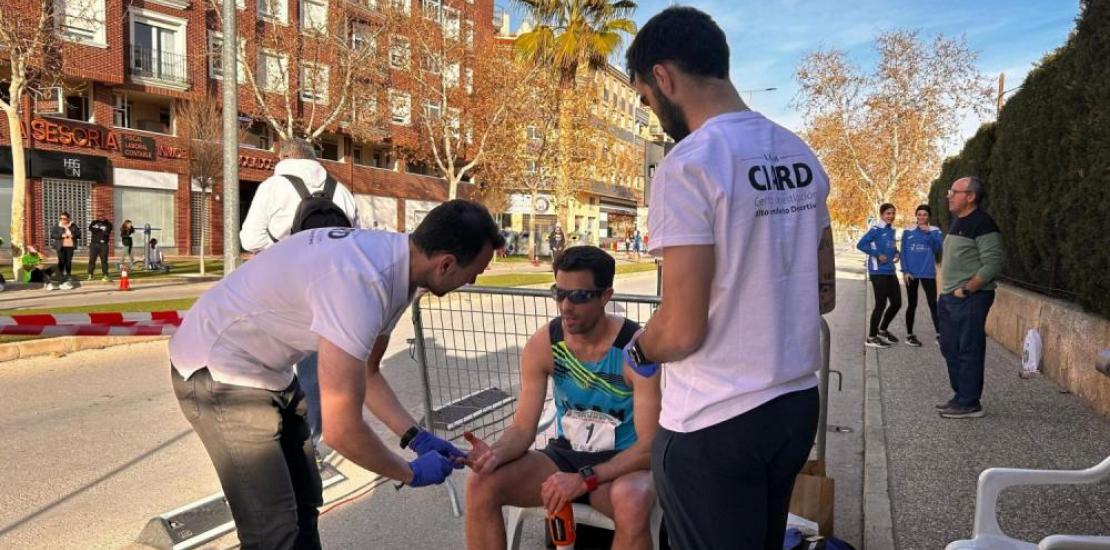The UCAM Research Centre for High Performance Sport collaborates with the Royal Spanish Athletics Federation to face the Paris Olympic Games
Researchers collected physiological and performance data from athletes like Álvaro Martín and Miguel Ángel López at the Regional Race Walking Championship held in Jumilla. The test consisted of a mixed relay simulation, a new competition debuting this summer, with the aim of defining strategies to fight for Olympic medals.
The UCAM Research Centre for High Performance Sport (CIARD-UCAM) has played an important role in the recent Regional Race Walking Championship held in Jumilla, where a simulation of the new mixed relay race walking event took place, a race which will debut at the Paris 2024 Olympic Games.
In this new race, each athlete of the competing duo faces a break of about 40 minutes after the first leg of the competition, introducing an unprecedented challenge in effort management and recovery. The strategic collaboration between CIARD-UCAM and the Royal Spanish Athletics Federation (RFEA) is focused on addressing this challenge and developing strategies to optimise the athletes' performance during the event. The field work to be carried out now involves detailed monitoring of competitions and simulations to gain a thorough understanding of the body's behaviour during alternating periods of exertion and recovery.

For this reason, the first competitive assessment took place last weekend during the Regional Race Walking Championships. The test consisted of 10km + 10km, with a 45-minute recovery between each run. World-renowned athletes, such as Álvaro Martín, current two-time world champion, and Miguel Ángel López, 2014 European champion and 2015 world champion, participated in this simulation, which allowed for a detailed monitoring of variables such as weight, perspiration, body temperature, blood gasometry and pulse, among others.
José Antonio Carrillo, Olympic race walkers' coach, noted that 'this is the first time we are doing a simulation of the relay event that we will be facing in Paris, and the work of the CIARD-UCAM is crucial to analyse data and study the body's behaviour during the intermediate rest'.
In this regard, CIARD researcher Cristian Marín explained the type of data they were gathering: ‘We need physiological and performance data in order to understand how the body responds in the downtime between the two races.’
The athletes are working closely with the researchers, as they know this work can make a difference in Paris. Miguel Ángel López, Olympic athlete and UCAM student, remarked that ‘all these measurements are going to be very beneficial for us, as we no longer depend so much on sensations; data dictates everything.’
The high level of the Spanish race walkers has raised the hopes of winning a medal in this new event. Álvaro Martín, two-time world champion, emphasised that ‘Spain can send up to two teams and I am sure we will be strong contenders.’
UCAM and RFEA will continue this work in future competitions with the aim of collecting data to help the coaches fine-tune the set-up and make decisions concerning the unexplored field of the resting period. All of the above is aimed at making it to the Olympic Games with the possibility of adding new medals for the Spanish Olympic team.




